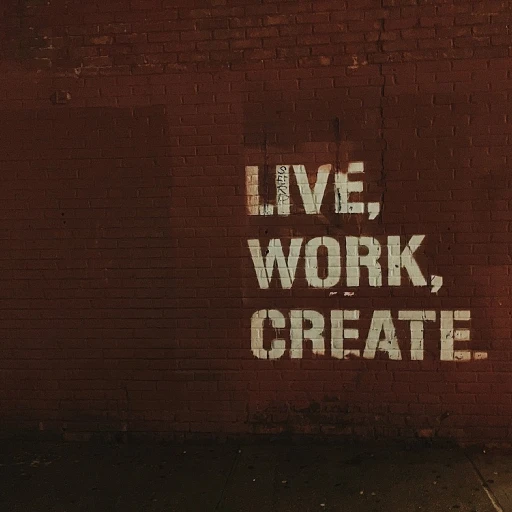
Understanding Background Checks
Decoding the Basics of Background Checks
Background checks have become a staple in the hiring process, serving as a crucial tool for employers to verify the criminal history and other records of potential employees. These checks are designed to provide a comprehensive view of an individual's past, including any criminal convictions, misdemeanor charges, or other relevant history records. The goal is to ensure a safe and trustworthy workplace, aligning with both state and federal laws.
Employers often rely on criminal background checks to assess whether a candidate's history might pose a risk to the organization. This involves scrutinizing criminal records, including any misdemeanor convictions, to determine their relevance to the job role. For instance, a DUI conviction might be more pertinent for a driving position than for an office job.
It's important to note that the scope of background checks can vary significantly depending on the state. For example, understanding Pennsylvania criminal background checks can differ from those in New York State due to varying state laws and regulations.
Employers must navigate these checks carefully, balancing the need for thorough vetting with respect for privacy and legal considerations. As we explore further, we'll delve into how misdemeanors appear on these checks and the implications for both job seekers and employers.
The Role of Misdemeanors in Background Checks
How Misdemeanors Fit into the Background Check Puzzle
Misdemeanors might seem minor compared to felonies, but in the realm of background checks, they can still carry weight. When an employer conducts a criminal background check, they're looking not only for serious criminal convictions but also for any misdemeanor convictions that might be relevant to the position at hand.What Employers are Really Looking For
When evaluating potential hires, employers typically review a candidate’s entire criminal history. Although misdemeanors are less severe than felonies, they can influence hiring decisions, especially when the misdemeanor relates to the duties of the job. For instance, a DUI might be more concerning for a role involving driving.The State Influence on Background Checks
Different states have diverse laws about what criminal records can appear on a background check. In some states, misdemeanors may remain on one's criminal record indefinitely unless expunged, while other jurisdictions might have laws for automatic misdemeanor expungement or a "clean slate" after a certain period. Misdemeanors can show up in various checks, depending on the state’s regulations. For example, New Hampshire has specific guidelines on what can or cannot appear during a background check. For further understanding, you can explore more about New Hampshire criminal background checks.Privacy and Legal Considerations
It's crucial to understand that certain state laws restrict how deep an employer can dig into an applicant's criminal history record. In some states, background checks are prohibited from showing criminal convictions older than seven years. This adds a layer of complexity to the hiring process, as employers must navigate between obtaining sufficient info and complying with legal statutes. Employers and job seekers should familiarize themselves with their state’s laws regarding misdemeanors and how they relate to employment opportunities, ensuring an informed and responsible approach to background checks.Legal Considerations and Privacy Concerns
Understanding Privacy and Legal Constraints
When navigating the complex landscape of background checks, it's essential to understand the intertwining of legal considerations with privacy concerns. Each state law has different stipulations on what elements of a criminal record can be disclosed and for what purposes. Whether it's criminal convictions or lesser charges, employers must ensure they're compliant with these laws during the hiring process.
At the heart of these checks are numerous laws aimed at protecting individual privacy. Many jurisdictions impose limitations on reporting minor offenses like misdemeanor convictions. For instance, some laws are designed to offer a clean slate to individuals, where misdemeanors stay concealed after a certain period, barring some exceptions such as DUI convictions.
A criminal defense attorney can often provide insights specific to state laws, aiding both job seekers and employers in understanding what criminal background information can lawfully be accessed and utilized. Furthermore, organizations like the law firm are instrumental in guiding businesses through these complexities, ensuring that privacy rights are respected while also maintaining the integrity of the employment decision-making process.
It's notable that the impact of these privacy laws extends into whether misdemeanors show up on background checks or not. These checks are meticulously regulated to balance employer interests with individual privacy rights, affecting how past history records can play a role in employment opportunities.
Impact on Employment Opportunities
Effect on Prospective Job Opportunities
Understanding how misdemeanor convictions can influence employment prospects is crucial in today's job market. Employers often conduct comprehensive background checks as part of their hiring process, scrutinizing any criminal record, including misdemeanors. Such checks are intended to assess the criminal history of potential employees to ensure a safe and secure workplace. Employers, guided by state laws and regulations, evaluate the relevance of any criminal convictions, including misdemeanor convictions, to the job role in question. While some states have enacted 'clean slate' laws to help individuals by limiting how long certain convictions stay on a record, others may not provide such opportunities. For instance, DUI charges or misdemeanors that involve theft could weigh heavily on job chances, depending on the employer's policies. Despite the intention behind these checks, there is a growing concern over whether misdemeanors should affect employment opportunities significantly, given their relatively minor nature compared to felonies. Individuals with misdemeanor charges might find their records acting as a barrier to job prosperity, especially if these misdemeanors show up prominently in background checks. As employers sift through criminal backgrounds, they often consider the type of misdemeanor when making hiring decisions but must balance this with the potential for rehabilitation and the time since the conviction occurred. For employers, understanding the nuances of a criminal defense and the difference between felony and misdemeanor convictions is crucial for fostering a fair hiring practice. Job seekers are advised to be upfront about any criminal history while emphasizing rehabilitation steps taken since any conviction. With a proactive approach, individuals can better navigate the hiring landscape, albeit with the knowledge that some criminal records might still impact their employment potential.Trends in Background Check Practices
Shifts in Background Check Methodologies
In recent years, advancements in technology and changing regulations have dramatically shifted how criminal background checks are conducted. Employers are increasingly relying on sophisticated algorithms and databases that provide comprehensive criminal records. This has led to more efficient and detailed misdemeanor checks, enabling them to make informed decisions during the hiring process.
Specific trends shaping the landscape include:
- Emphasis on Clean Slate Initiatives: Some jurisdictions are advocating for automatic expungement of certain misdemeanor and felony convictions after designated periods without reoffense. These initiatives aim to offer a fresh start to individuals with past offenses, allowing misdemeanor convictions to no longer appear on background checks after a state-specified time. Clean slate laws can vary, with states like New York implementing significant policy changes in this area.
- Heightened Privacy Concerns: The balance between employer access to criminal records and an individual’s right to privacy remains a crucial issue. Legal advocates often cite privacy concerns as potential barriers to personal rehabilitation, emphasizing the importance of responsible data handling and storage practices. Some state laws now impose stricter regulations on how criminal conviction data can be used and disclosed.
- Diverse Impact of State Laws: Each state has its regulations regarding what criminal history information can be accessed and under what circumstances. For instance, in some states, misdemeanor charges like DUI may not show up on a standard background check unless there was a conviction, while others might keep these records visible for longer. This leads to disparities in how criminal records influence employment opportunities across different states.
- Enhanced Role of Criminal Defense Advice: Individuals facing misdemeanor charges are increasingly seeking guidance from legal professionals to understand potential impacts on their background record. Lawyers from state-specific law firms are sought after to navigate these intricacies, ensuring that rights are respected in the context of background checks.
The role of background checks in employment continues to be significant, with adaptation to legal changes and societal expectations prominently shaping the practice. As the landscape evolves, both job seekers and employers should stay informed about the latest trends and legislative developments that may impact how criminal history records are accessed and interpreted.
Best Practices for Employers and Job Seekers
Guidance for Employers and Job Seekers in the Background Check Landscape
Navigating the nuances of background checks can be complex, especially when considering criminal records, such as misdemeanors. Both employers and job seekers must equip themselves with best practices to ensure a fair and lawful hiring process. As an employer, one of your key responsibilities is to remain compliant with state laws regarding how background checks are conducted and used. It's essential that you:- Confirm that your hiring policies align with state laws regarding misdemeanor disclosures and the treatment of various charges, including those related to DUI or other criminal convictions.
- Ensure transparency in your hiring process, clearly communicating with applicants about what will show up on a background check.
- Implement consistent background check procedures for all candidates to avoid potential discrimination claims.
- Be proactive in addressing any misdemeanor charges or convictions. Familiarize yourself with your own criminal records by requesting a copy from relevant state agencies.
- Prepare to discuss any misdemeanors openly during interviews, focusing on what you have learned and how you have moved forward since the conviction.
- Research the clean slate laws in your state, which may help in clearing or sealing your records to improve your employment prospects.












